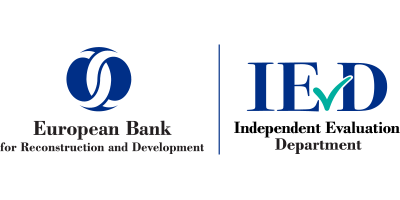
Member

Independent Evaluation Department, European Bank for Reconstruction and Development
The Independent Evaluation Department (IEvD) evaluates the performance of the Bank’s completed projects and programmes relative to objectives.
It systematically analyses the results of both individual projects and wider themes defined in the Bank’s policies.
The core objective of evaluation is to contribute to the Bank’s legitimacy, relevance and to superior institutional performance. To achieve its core objective, the Evaluation Department fulfills two primary functions:
- It provides a critical instrument of accountability through objective, evidence-based performance assessment of outputs and outcomes relative to targets; and
- It contributes to institutional learning for future operations by presenting operationally useful findings.